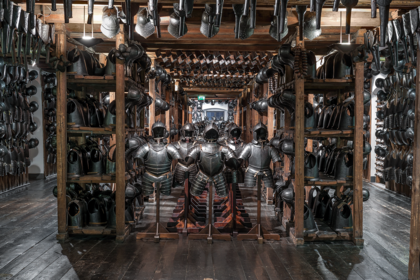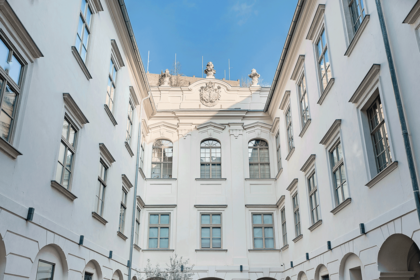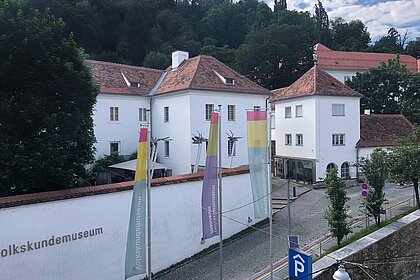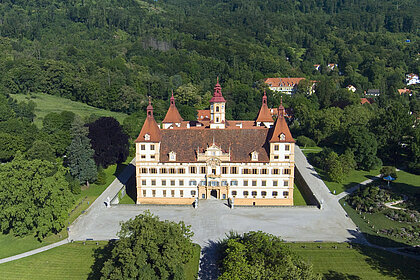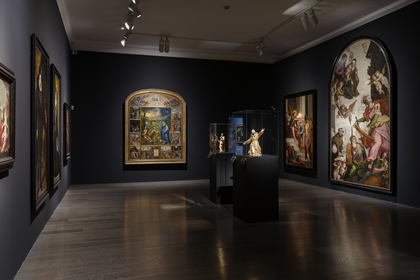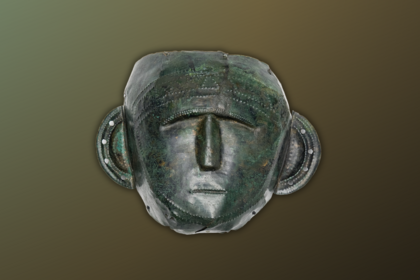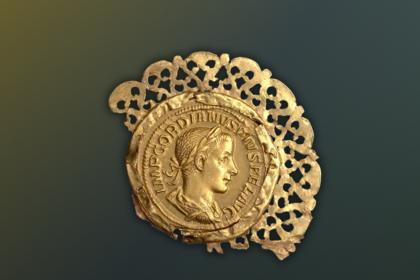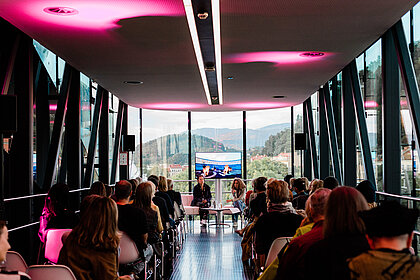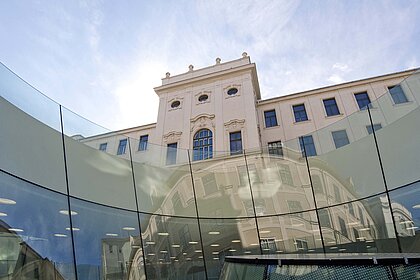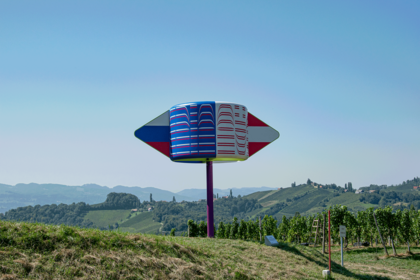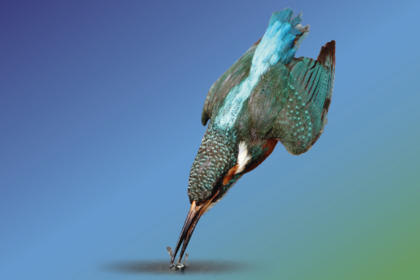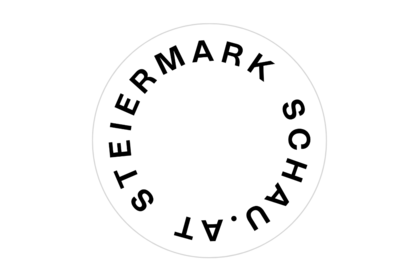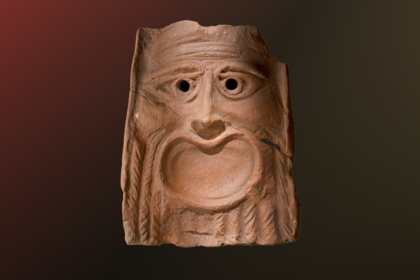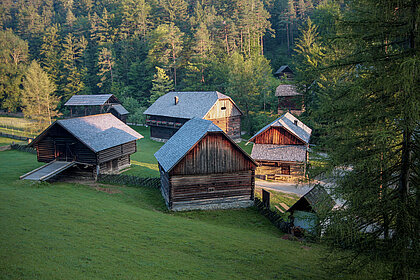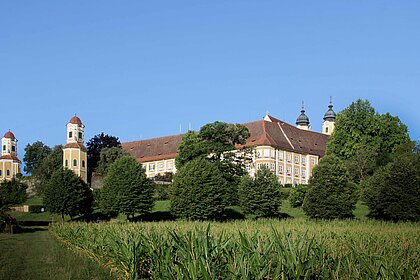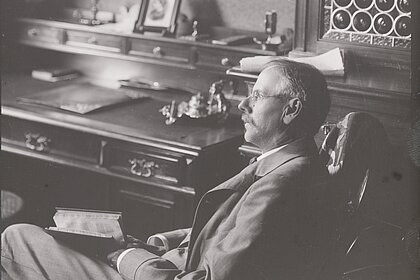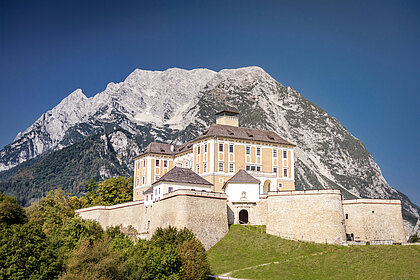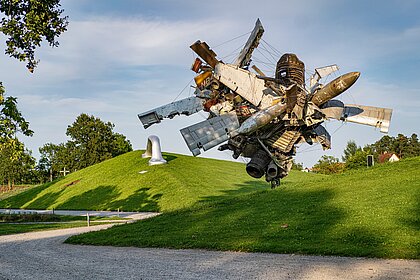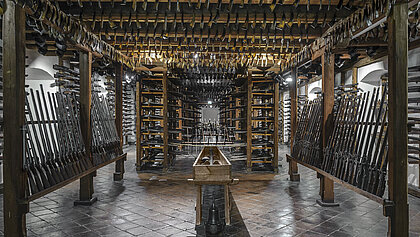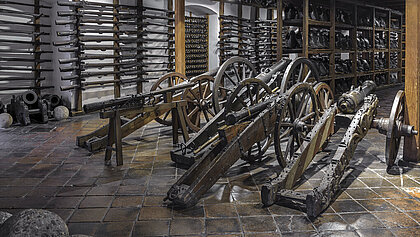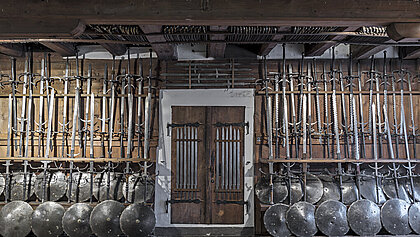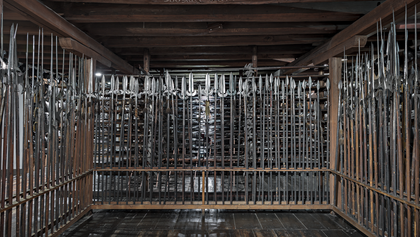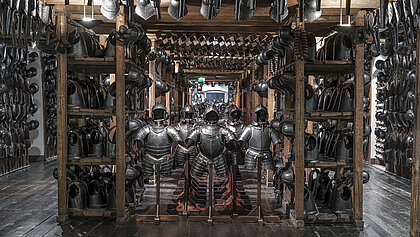The Collection of the Styrian Armoury contains arms and armour from the 15th to the 18th centuries.
By the turn of the 17th century, the number of arms and armour had grown to approximately 190.000 objects.
Today the Styrian Armoury contains 32, 000 objects: armour, fire arms and cannons, staff and edged weapons, bullet moulds and powder flasks stored on four floors with more than 2000 square metres of exhibition space.
Collection
Historic Armoury
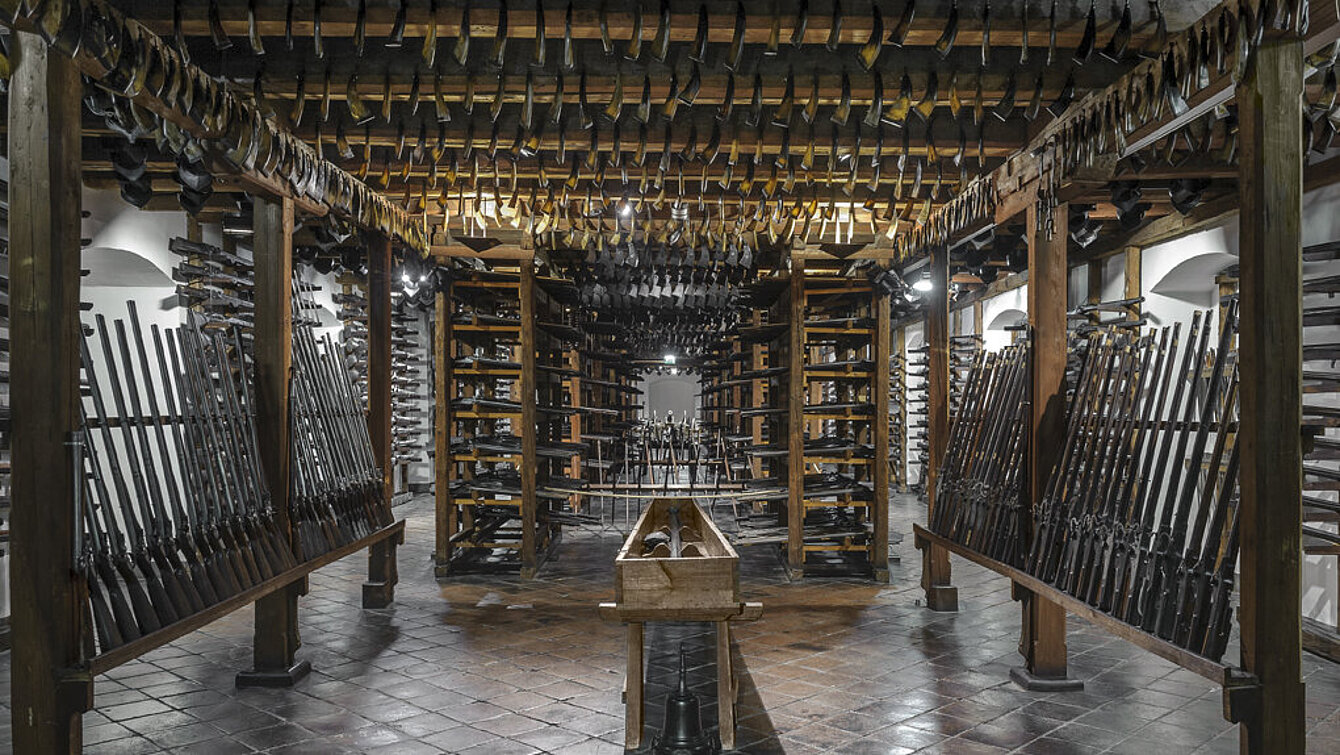
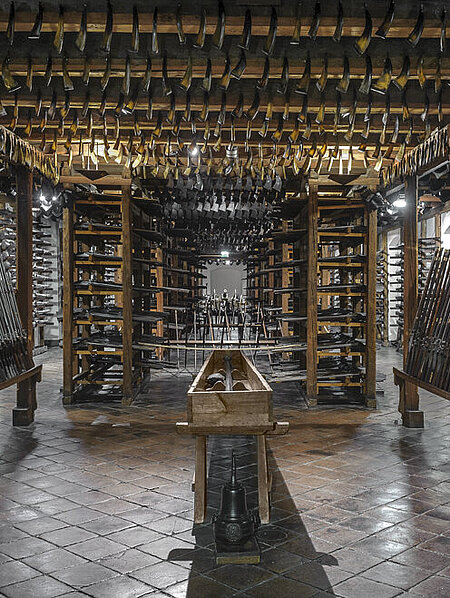
Image Credits
Fire arms and accessories
With around 13,400 items, the collection of small arms and accessories is the most comprehensive in the armoury.
Artillery and accessories
The artillery collection has 704 exhibits: wall guns, mortars, cannons, falconets as well as various accessories:bullets, calliper gauges, calliper compasses, loading shovels, loading sticks, casing cleaners and casing scrapers.
Edged weapons
The collection of edged weapons contains around 2,414 items: two-handed swords, one-and-a-half handers, various types of sabres, pallasches, estocs, dusägges and broadswords.
Staff weapons
There are 5.395 staff weapons preserved in the Armoury: mainly halberds and pikes, fewer boar spears, couses, tardes, morning stars and glaives.
Defensive arms
There are around 3,844 helmets, suits of chain mail, armoured sleeves, shields and suits of armour produced in Graz, Nuremberg and Augsburg between the years 1500 and 1685.
Visitors' Guide
Begleitheft deutsch
Visitor's Guide. English
Spremna knjižica. Slovenščina
Dèpliant illustrativo. Italiano
Livret de visite. Français
Брошюра. русский
Kísérőfüzet. Magyar
